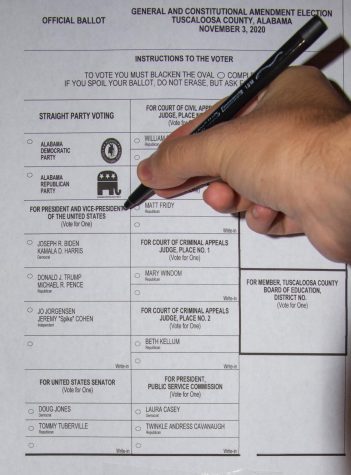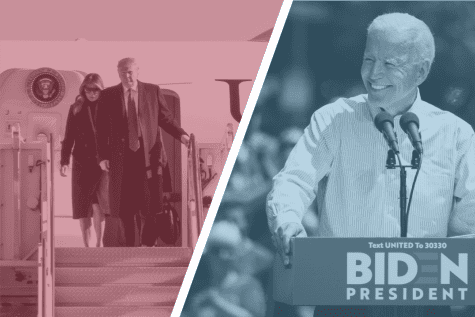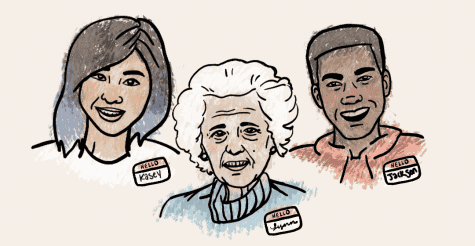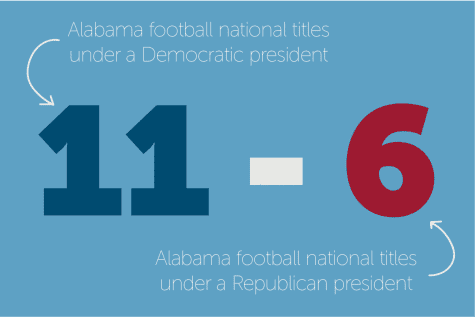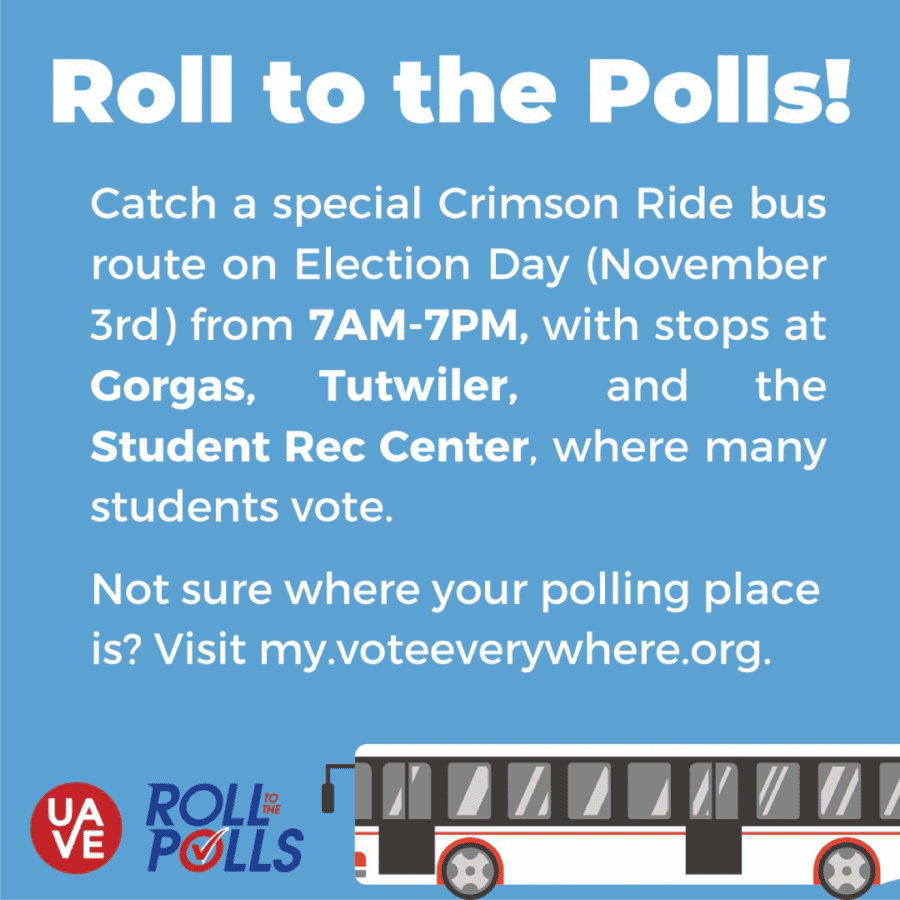‘All sorts of roadblocks’: Meet the organizers working to register their fellow students to vote
Read more from the Nov. 2 Election Edition.
According to census data, less than 45% of potential voters aged 18-29 casted ballots in the 2016 general election. For decades in the United States, young voters have consistently had the lowest turnout numbers in elections.
But Josiah Gleason, a sophomore majoring in political science and Alabama native, said The University of Alabama has made a noticeable effort to keep students informed about voting.
“They send me [a lot] of emails, but I delete most of them,” Gleason said. “There have also been a lot of political campaigns allowed on campus.”
Yet it wasn’t the emails or the campaigners that got Gleason to register to vote. He owes that to programs that made the registration process easier.
“I’ve been registered to vote since March,” Gleason said. “The process was easy, and it took just a few minutes online.”
For other potential voters, especially those coming from out of state or those requesting absentee ballots, the registration process may not be as simple.
To register to vote online in the state of Alabama, an Alabama-issued ID number is required, and those with out-of-state IDs who want to vote in Alabama are required to fill out a paper form, which then has to be mailed in – a process that requires envelopes, stamps and access to a printer.
“The absentee ballot request is difficult and confusing for anybody. When I got my first absentee ballot, I screwed it up twice,” said Samuel Reece, president of Vote Everywhere UA, a non-partisan campus chapter of the Andrew Goodman Foundation that registers, educates and mobilizes voters.
Out-of-state voters aren’t the only ones utilizing mail-in ballots. With concerns about the coronavirus pandemic, more Americans than ever are expected to vote by mail in the 2020 U.S. presidential election.
According to the Pew Research Center, nearly half of all ballots cast in the March 2020 presidential primary elections were mailed in.
According to a press release from Alabama Secretary of State John Merrill on Oct. 20, voters in Alabama have requested 217,427 absentee ballots and 145,574 have been successfully submitted. But the process can still be daunting.
Reece said Vote Everywhere UA was contacted by the UA Athletics Department for help in registering student athletes, many of whom had to request absentee ballots. Vote Everywhere worked alongside the UA Athletics department throughout the semester to register those student athletes.
Reece said Vote Everywhere helped between 75 and 100 student athletes request absentee ballots during its partnership with the athletics department. In 2020 alone, Vote Everywhere helped 1,295 UA students register to vote.
Absentee ballot request forms aren’t the only roadblocks to the voting registration process.
“There are all sorts of roadblocks for voters, and I think that is something that is really overlooked,” said Jack Kappelman, Vote Everywhere’s secretary.
Kappelman said one issue Vote Everywhere encountered during registration drives was that the only form of photo ID that some students had was their UA student identification card.
Starting in the fall 2020 semester, The University of Alabama began issuing electronic-only ACT cards to incoming students.
The state of Alabama requires a valid photo ID at polling stations and when requesting an absentee ballot, but until late September 2020, electronic forms of student ID were not accepted at polling stations or when requesting an absentee ballot.
Reece expressed concerns over The University of Alabama issuing only electronic IDs. He said he believes it would negatively impact students registering to vote or requesting absentee ballots.
Reece also said that in June, Vote Everywhere, along with the Andrew Goodman Foundation and the ACT card office, began lobbying Merrill to accept electronic student IDs as a valid form of voter ID.
Reece said “it took months of playing phone catchup” with the secretary of state’s office between June and September before the decision to accept electronic student IDs was eventually made in late September.
Reece said although Merrill’s office was receptive to the issue, getting the decision made “took a lot of pushing and prodding.” Even after electronic student IDs were approved, Kappelman said the process was complicated for students who had only their electronic ACT card as a form of photo ID.
“There were no clear guidelines on how to submit their [electronic] form of ID,” Kappelman said.
Kappelman said students had to take a screenshot of their student ID, and then print out that screenshot.
“I’m not sure how else we could have done it,” Kappelman said.
There are a number of factors both in Alabama and within the University that Reece said may contribute to low voter turnout among young, student voters.
“The system in Alabama is designed to keep you from casting your ballot,” Reece said.
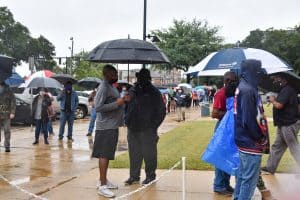
But in Alabama or not, Reece said he believes that one major issue facing potential student voters is their high rate of mobility. Young Americans have a higher migration rate than any other age demographic, according to data from the United States Census Bureau.
The high mobility rate of young Americans can cause issues when it comes time to vote.
“Students move a lot, so there is a lot of re-registration that has to happen if [students] move every year,” Reece said.
He also said some of the students that Vote Everywhere served were affected by misinformation and rumors concerning how voting absentee or registering to vote in Alabama would affect their residency and financial aid.
“In reality, registering to vote doesn’t affect those things,” Reece said. “We have to fight that battle and let folks know that they can register to vote in Alabama if they want to.”
To apply for an absentee ballot in Alabama, applicants are required to have either two witnesses or one notary public sign their ballot application.
The requirement was briefly rescinded for Mobile, Jefferson and Lee counties by Abdul Kallon of the Federal District Court in Birmingham, who ruled that voters aged 65 or older or those who submitted a statement pledging that they were at medical risk would not have to seek the signature of a notary or two witnesses on their ballots.
But on Oct. 13, the U.S. Court of Appeals overturned Kallon’s ruling, reinstating the requirement of a notary or two witnesses.
Merrill said that ballots that do not have the signature of a notary or two witnesses that were submitted while Kallon’s ruling was in place will still be counted, but that those submitted after Oct. 13 that do not meet the newly reinstated requirements will not be counted.
Reece said the notary or two witnesses requirement is an impediment to voters, and Vote Everywhere would like to see the requirement changed. He also noted that Vote Everywhere would like to see The University of Alabama move the on-campus polling place, which is currently the Student Recreation Center, to a more central location on UA’s campus.
“We are grateful to have an on-campus polling place,” Reece said. “But it could be in a more central location where it’s easier for folks to get to from all over campus.”
Vote Everywhere, with grant money provided from Roll to the Polls, a non-partisan organization that helps provide Election Day transportation, chartered a Crimson Ride bus that will provide transportation from Tutwiler Hall and Gorgas Library to the Student Rec Center from 7 a.m. until 7 p.m. on Tuesday, Nov. 3.
Vote Everywhere organizers would also like to see the University make Nov. 3 a holiday from classes, Reece said.
“Having no classes would give everyone plenty of time to get to their polling place,” Reece said. “We should celebrate [Election Day] as the special thing that it is, not just another Tuesday in November.”



